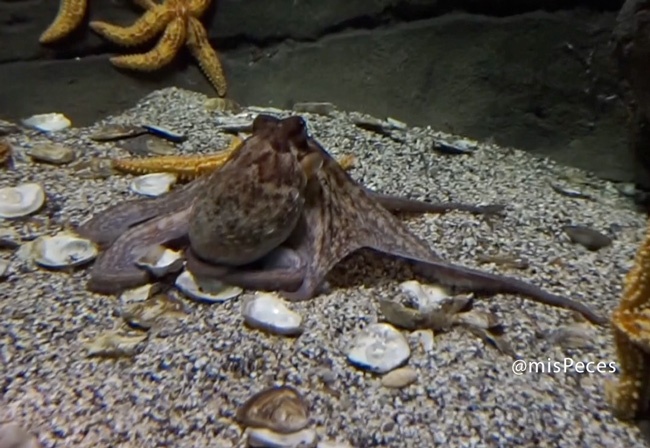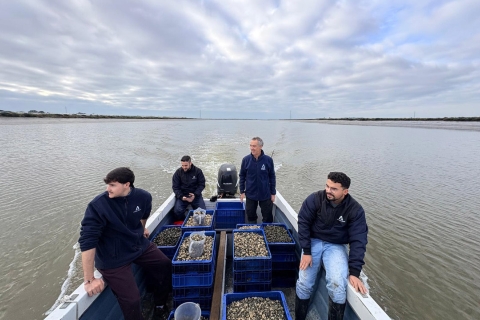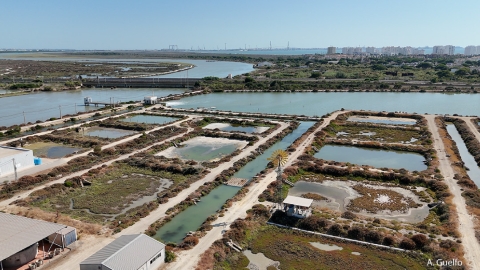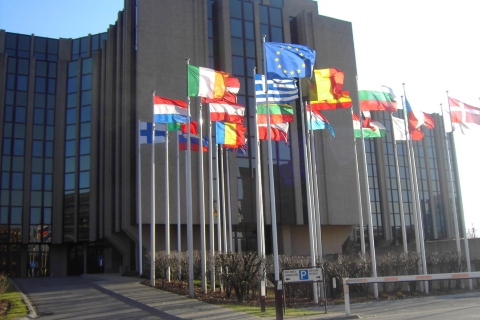
The Spanish Parliament is set to debate a bill that seeks to ban the farming and commercial trade of octopuses, including any activities linked to their processing, storage, transport or sale. The initiative, put forward by MPs from Sumar, Esquerra Republicana de Catalunya and Podemos, also proposes to tighten penalties under Spain’s 2001 Maritime Fishery Law, classifying such activities as serious offences.
The proposal has been introduced by members of the cross-party Parliamentary Association for the Defence of Animal Rights and is a direct response to plans by seafood company Nueva Pescanova to develop the world’s first commercial octopus farm in the Canary Islands. The legal text incorporates contributions from INTERCIDS, an organization of legal professionals advocating for animal rights.
According to APDDA, octopus aquaculture is “a completely new activity, for which there is no specific regulation, and which we already know will inevitably result in harm to these animals and to the environment. These negative impacts suggest that, as precaution, the activity should be banned.”
If approved, the law would come into force the day after its publication in Spain’s official state gazette and would apply as a default framework in autonomous regions, overriding regional legislation where necessary. Meanwhile, Nueva Pescanova’s project in the Canary Islands remains under environmental review and awaits final political approval.
International Scientists: A Blanket Ban Ignores Scientific Evidence
While the political debate intensifies, a group of leading scientists from 66 research institutions in 25 countries has warned against rushing into prohibition. Writing in the journal Marine Policy, they argue that sustainable octopus farming could become a viable, ethical and environmentally responsible solution to rising global protein demand.
The authors, who make up the Sustainable Cephalopod Aquaculture and Welfare Group, stress that “a general ban overlooks the potential benefits of octopus farming, which is still in the experimental stage and could help build more sustainable food systems and reduce pressure on wild stocks-provided it is developed with strong scientific oversight.”
The paper responds to recent moves in the United States, where octopus aquaculture has already been banned in California and Washington, and where a national ban is under discussion. The push is based largely on ethical and environmental concerns. However, the scientists argue: “Concerns around animal welfare and sustainability are valid, but both are already being addressed through ongoing innovation, scientific research and regulation-thus, a complete ban is not justified.”
Critics often cite the octopus’ intelligence and sensitivity as reason it should not be farmed. But the researchers point out: “Animals raised for human consumption for millennia-such as pigs, cows and chickens-are no less sentient. Humane farming practices continue to evolve and are subject to regulation to ensure animal welfare.” In this context, they argue that similar welfare standards should be tailored to the octopus’ unique physical and cognitive needs.
On the issue of sustainability, particularly the carnivorous diet of octopuses, the authors note that progress is being made: “Some aquaculture feeds for carnivorous fish now contain over 70% plant-based ingredients.” They warn that banning octopus farming now would “undermine this progress and prevent the sector from contributing to global food security and nutrition, while helping conserve wild populations that have been harvested for centuries.”
With global demand for animal protein expected to hit two billion tonnes annually by 2050, the researchers argue that we cannot afford to prematurely rule out any responsible source of nutrition. “Aquatic foods, including cephalopods, are highly nutritious and beneficial for human health,” they add. Moreover, small-scale octopus farming could provide economic and food security benefits to coastal communities in developing countries.
Among the authors are experts from Spain’s Institute of Marine Sciences (ICM-CSIC) in Barcelona and from international organisations such as AiCeph LLC in Japan. They clarify that they have no financial ties to the octopus farming industry, stating: “We are scientists sharing our views on the viability of octopus aquaculture.”
As the debate continues, the scientific community is urging policymakers to base decisions on evidence—not assumptions. “It is essential to assess all food production systems thoroughly before ruling them out,” they conclude.



